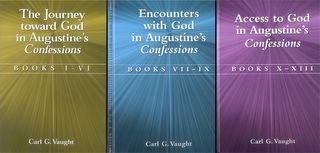
Shover illuminates 19th-century Chico
By DAN BARNETT
It was a birthday present from her husband, George Lillibridge. Over the years, Michele Shover, emeritus professor of political science at Chico State University, had published articles and given speeches about Chico in the 19th century (and a few other subjects as well, such as how women were portrayed in World War I propaganda). But they had never been collected -- until now.
In an e-mail to me, Shover wrote: "He had the book assembled and at the proof stage when he told me what he was doing. What a lovely surprise! I was 'allowed' to edit the proof! It was a wonderful present, of course. ... Needless to say, I am fortunate in his thoughtfulness. After almost 30 years of pouring over this subject in such minute detail, the book gives me confidence that the information I discovered and 'the stories' will enter Chico's conscious sense of its past which is really pretty remarkable for such a small 19th-century town."
"Exploring Chico's Past ... And Other Essays" ($22.99 in paperback from Xlibris Corporation) is available in Chico at Lyon Books, Barnes and Noble, the university's A.S. Bookstore, Made in Chico and Bird in Hand.
The author will sign copies at Barnes and Noble (2031 Whitman Ave.) at 1 p.m. Saturday and the public is invited.
Though trained as a political scientist, Shover became interested in local history when she purchased the Little Chapman Mansion in 1976. It is perhaps the oldest house in Chico and its history is recounted in the first essay in the book, followed by a guide to "Searching Your Old House's History." Other essays include "Chico Women: Nemesis of a Rural Town's Anti-Chinese Campaign 1876-1888"; "The Black Experience in Chico, 1860-1899: Climbing the Slippery Slope"; and "Women at Work in 19th Century Chico." It's clear, as Lillibridge writes in the foreword, that Shover has an abiding "interest in and concern for the neglected and ignored in society as well as in historical studies."
Shover digs for detail. In a short piece on "Chico's Mystery Tunnels," the author tries to reconcile seemingly conflicting accounts of whether there were tunnels under "New Chinatown" in Chico on Cherry Street. (It was well known that Old Chinatown did indeed have "connected basements beneath the buildings that lined the east side of Flume between Seventh and Eighth streets.") It's likely, she concludes, for security reasons: "At recurring intervals over the 19th century, Chinese in Chico were at mortal risk to eruptions of anti-Chinese violence. Sometimes -- as in 1877, 1887, and 1894 -- these threats arose in the form of vigilante raids on their quarters."
The book also includes an account of the trial of Chico prostitute Molly White in 1883. She had been befriended by the First Methodist Church, North, but then came word "that popular teamster Riley Strahl had died at 1:30 a.m. -- of strychnine, people were saying -- while keeping company with Molly White."
Another short essay situates Chico's founder, John Bidwell, as a liberal; in her note to me, Shover explains: "It doesn't mean liberal as modern wing of the Democratic Party, but Liberal as in classical Lockean Liberal -- i.e., economically focused, individualistic and understanding government as a proper ally of business."
She's at pains to clear away certain myths about Bidwell, and Chico itself, so that Chicoans can "absorb a more sophisticated -- indeed a more interesting -- view of their collective past."
"Exploring Chico's Past" is an invaluable contribution toward that end.
Dan Barnett teaches philosophy at Butte College. To submit review copies of published books, please send e-mail to dbarnett@maxinet.com. Copyright 2006 Chico Enterprise-Record. Used by permission.


